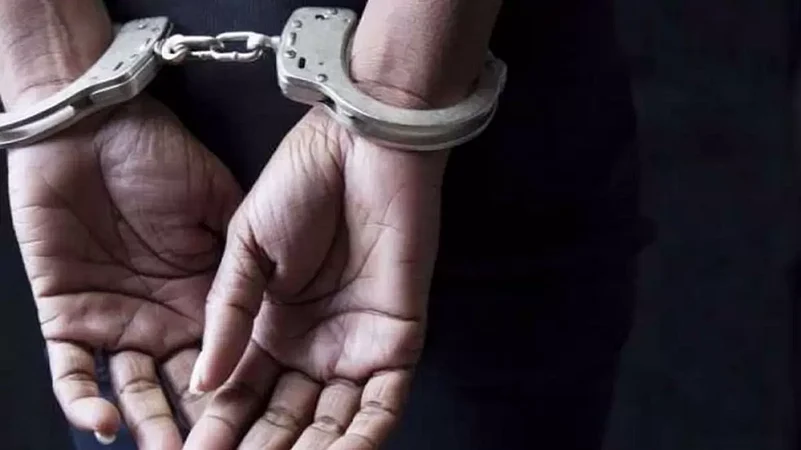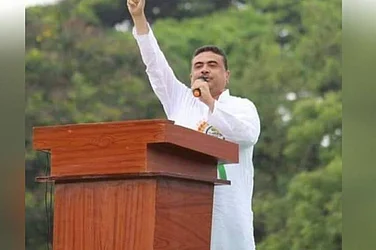The Narcotics Control Bureau on Tuesday busted the "biggest" darknet-based LSD cartel operating in India and they have seized more than 13,000 blots and Rs 26 lakh in cash and the arrest of three persons.
NCB Deputy Director General (operations and enforcement) Gyaneshwar Singh said that a cartel named 'Zambada' has a "high volume of business and supply chain" of a hallucinogenic category of drug and has been operating in the United Kingdom, the United States, South Africa, Canada, Russia, Spain, Portugal, Greece and Turkiye.
Singh said that young educated men within the age bracket of 21-25 years were operating the cartel.
The agency busted another LSD trafficking cartel in the last three months.
What is LSD?
Lysergic acid diethylamide, commonly known as LSD, is a synthetic chemical-based drug classified as a hallucinogen. This drug is frequently abused by young people and can cause severe health problems. LSD is odourless, colourless, and tasteless and is often applied to small squares of paper, also known as blots, which can be ingested orally.
How did they manage to bust the LSD cartel?
In June, the federal anti-narcotics agency reportedly seized a cache of 15,000 LSD blots which has been the highest-ever catch in one operation and they also arrested half-a-dozen people.
Gyaneshwar Singh said that they learnt after continuous operations that the largest cartel operating in LSD on the darknet - Zambada- operates from Delhi-NCR.
Further Singh revealed that through technical and human surveillance they identified two of the ground operators of this cartel and that led to the location of the "mastermind" of this cartel who was operating from Ballabgarh (Faridabad) in Haryana.
That is when the agency conducted multiple raids on the premises of these three people and they were able to seize reportedly 13,863 LSD blots, 428 grams MDMA (ecstasy), and the freezing of Rs 26.73 lakh "drug money".
The NCB in a statement said that on the darknet the cartels are rated on a scale of 1-5 based on their potency of the drug sold by them and their customer service and the 'Zambada' cartel is the "only" cartel in the country with a so-called "5-star rating".
What is the darknet?
Darknet refers to the deep hidden internet platform that is used for narcotics sale, exchange of pornographic content and other illegal activities by using the secret alleys of the onion router (ToR) to stay away from surveillance by law enforcement agencies.
Who is behind the Zambada cartel?
The NCB said the cartel's name is derived from “Ismael-Marlo Zambada Garcia”, a Mexican drug lord, and he was the last remaining fugitive on the list of Mexico's 37 most wanted drug criminals.
He carries a reward of up to USD 15,000,000, the agency said. The first time the name of this cartel was reported in the country was in September 2022 when the Hyderabad Police arrested eight people for drug trafficking using the darknet.
Garcia, according to the NCB, declared on the darknet after this interdiction in India that he was safe and will never be caught.
Garcia is stated to be in "close contact" with a darknet operator called- Dr Seuss alias DS and TS (Tribe Seuss) or Gamma Goblin- who is the largest source of LSD across the globe.
'Zambada' intended to open an Indian "outlet" of Dr Seuss with a minimum stock of one lakh LSD blots.
It has "outlets" in the UK, USA, South Africa, Canada, Russia, Spain, Portugal, Greece and Turkiye, according to DDG Singh.
"He (Dr Seuss) had already started recruiting people for this purpose and had put in place the logistics and space," the NCB officer said.
The NCB said it is working to unearth the third such known LSD cartel operating in the country. As part of the two earlier busts, it has registered a total of six cases in Delhi under the provisions of the Narcotic Drugs and Psychotropic Substances Act (NDPS) leading to the arrest of 22 Indians till now.
The two operations led to a total seizure of 29,013 LSD blots and 472 grams of MDMA powder and the freezing of Rs.51.38 lakh cash or "drug money".
These cartels collect money in various crypto wallets and then transfer it across through various layers of virtual currencies and finally receive the money in their bank accounts, an NCB officer said.
(With PTI inputs)













.png?auto=format%2Ccompress&fit=max&format=webp&w=376&dpr=2.0)




.png?w=200&auto=format%2Ccompress&fit=max)







